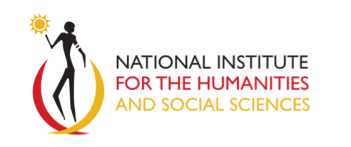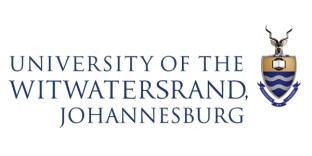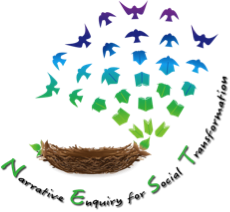 2nd Narrative Enquiry for Social Transformation (NEST) International Conference
2nd Narrative Enquiry for Social Transformation (NEST) International Conference
22-24 March 2018
University of the Witwatersrand
Keynote Speakers
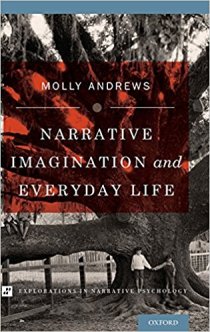 Molly Andrews is Professor of Political Psychology, and Co-director of the Centre for Narrative Research (www.uelac.uk/cnr/index.html) at the University of East London. Her research interests include political narratives, the psychological basis of political commitment, political identity, patriotism, and aging. She is currently working on a project called The Unbuilding of East Germany: Excavating Biography and History. Her books include Lifetimes of Commitment: Aging, Politics, Psychology and Shaping History: Narratives of Political Change (both Cambridge University Press), and Narrative Imagination and Everyday Life (Oxford University Press). Her publications have appeared in five languages.
Molly Andrews is Professor of Political Psychology, and Co-director of the Centre for Narrative Research (www.uelac.uk/cnr/index.html) at the University of East London. Her research interests include political narratives, the psychological basis of political commitment, political identity, patriotism, and aging. She is currently working on a project called The Unbuilding of East Germany: Excavating Biography and History. Her books include Lifetimes of Commitment: Aging, Politics, Psychology and Shaping History: Narratives of Political Change (both Cambridge University Press), and Narrative Imagination and Everyday Life (Oxford University Press). Her publications have appeared in five languages.
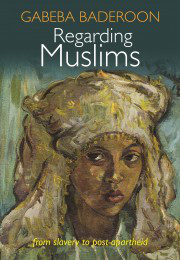 Gabeba Baderoon is the author of Regarding Muslims: from Slavery to Postapartheid (awarded the 2017 National Institute for the Humanities and Social Sciences Best Non-fiction Monograph Award) and the poetry collections The Dream in the Next Body, The Museum of Ordinary Life and A hundred silences. She is a recipient of the Daimler Award for South African Poetry and is a member of the editorial board of the African Poetry Book Fund. With Alicia Decker, Baderoon co-directs the African Feminist Initiative at Pennsylvania State University, where she is an Associate Professor of Women’s, Gender and Sexuality Studies and African Studies. She is an Extraordinary Professor of English at Stellenbosch University and a Fellow of the Stellenbosch Institute for Advanced Study.
Gabeba Baderoon is the author of Regarding Muslims: from Slavery to Postapartheid (awarded the 2017 National Institute for the Humanities and Social Sciences Best Non-fiction Monograph Award) and the poetry collections The Dream in the Next Body, The Museum of Ordinary Life and A hundred silences. She is a recipient of the Daimler Award for South African Poetry and is a member of the editorial board of the African Poetry Book Fund. With Alicia Decker, Baderoon co-directs the African Feminist Initiative at Pennsylvania State University, where she is an Associate Professor of Women’s, Gender and Sexuality Studies and African Studies. She is an Extraordinary Professor of English at Stellenbosch University and a Fellow of the Stellenbosch Institute for Advanced Study.
CALL FOR PANELS AND PAPERS
Conference Theme
Narrative Enquiry for Social Transformation (NEST) is a research network launched in July 2015 with the aim to foster the theory and practice of narrative as a field of study through interdisciplinary research and empirical investigations into questions of human experience, development and social change. Its members are drawn from the Humanities and Social Sciences as well as creative and community-based constituencies. The current configuration of the NEST network allows for an articulation between the Arts, Social Sciences and Socio-psychological work.
NEST is informed by the principle that narrative is one of the defining features of what it means to be human. Personal and collective senses of self, experience, desires, fears and hopes are developed in and through narrative meaning-making, providing recognition and validation, and deepening our sense of human dignity across lines of difference and existence. The transformative possibilities of narrative lie in the ways in which it enables people to: give coherence to their lives and the world around them; develop forms of critical consciousness and thinking; imagine possible alternative social realities and futures; and, ultimately, not only to read them-selves and their place in the world but also to be read by others. It is people who make culture and culture that in turns remakes us, and this process is always political and potentially transformative.
Research Threads
NEST seeks to undertake research that traces ideologies, experiences and identities across time as constructed through inter / cross generational experience and storytelling; the reconstruction of (cultural memory); and transmission of unofficial histories and alternative narratives by ordinary people, particularly in families, communities, educational and creative contexts. Its research agenda incorporates a wide range of theoretical and critical conceptual and creative work that can be undertaken from multiple disciplinary perspectives and methodologies. The following constitute the core thematic threads of NEST:
- The narrative formation of consciousness and subjectivities
- Marginality, the body, affect and narrative
- Narrative form and symbolic representations in multiple modalities: textual, visual, archival, aural and performative.
- Intergenerational narratives.
- Developing knowledge and praxis through empirical projects
We invite papers and panels that use NEST research threads as a catalyst but other explorations of any aspects related to narrative are also welcome.
Please send abstracts of up to 300 words for individual papers and / or panels by 15 October 2017 to the conveners at Jill.Bradbury@wits.ac.za and Bhekizizwe.Peterson@wits.ac.za
Once abstracts have been accepted, participants will be notified. The conference will take the form of pre-circulated papers for discussion. Full Papers will be due a month in advance of the conference to allow sufficient time for discussants to read.
Conveners: Jill Bradbury and Bhekizizwe Peterson
Committee Members: Hugo Canham, Lindelwa Dalamba, Cynthia Kros, Ronelle Carolissen, Grace Musila, and Khwezi Mkhize.
